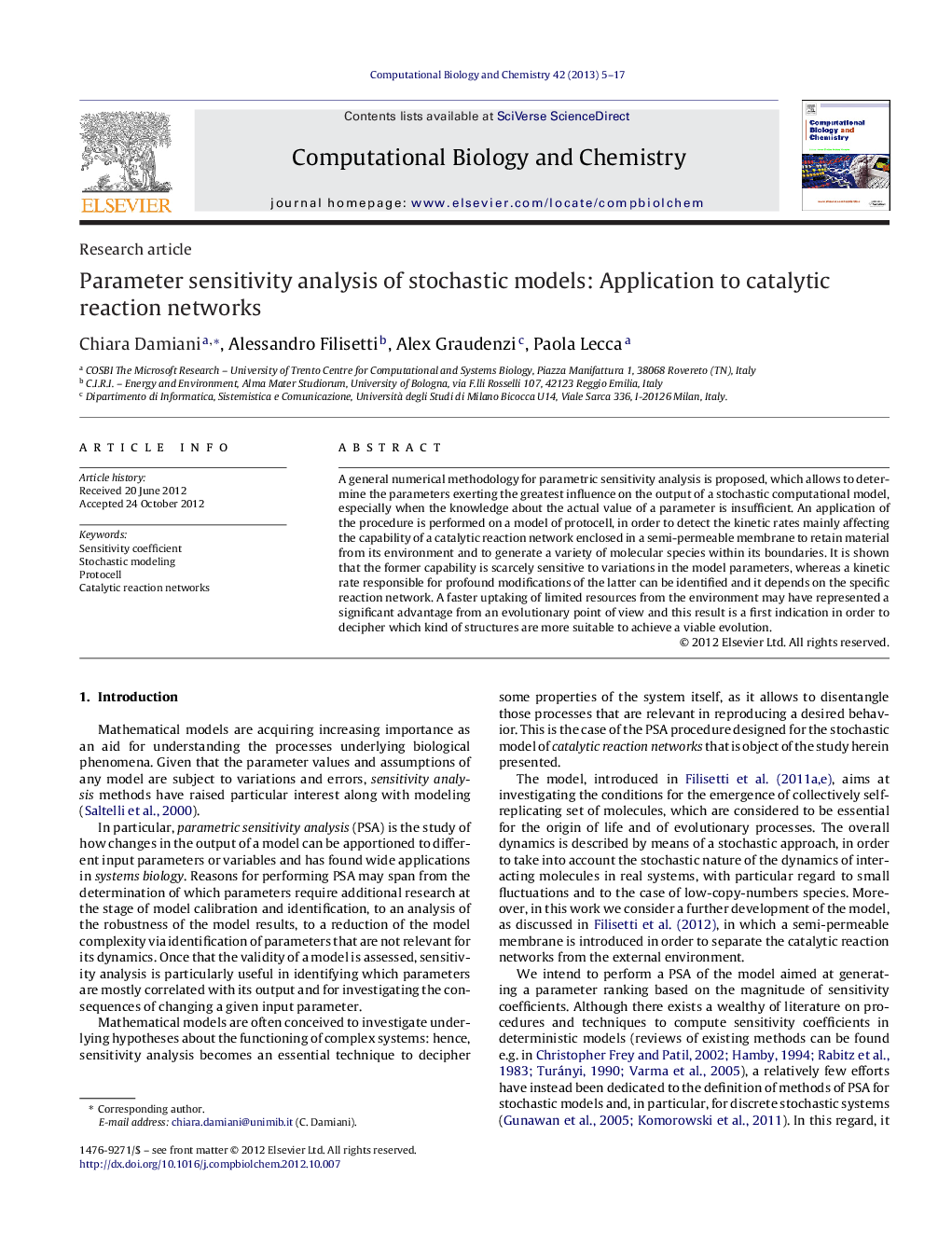| Article ID | Journal | Published Year | Pages | File Type |
|---|---|---|---|---|
| 15167 | Computational Biology and Chemistry | 2013 | 13 Pages |
A general numerical methodology for parametric sensitivity analysis is proposed, which allows to determine the parameters exerting the greatest influence on the output of a stochastic computational model, especially when the knowledge about the actual value of a parameter is insufficient. An application of the procedure is performed on a model of protocell, in order to detect the kinetic rates mainly affecting the capability of a catalytic reaction network enclosed in a semi-permeable membrane to retain material from its environment and to generate a variety of molecular species within its boundaries. It is shown that the former capability is scarcely sensitive to variations in the model parameters, whereas a kinetic rate responsible for profound modifications of the latter can be identified and it depends on the specific reaction network. A faster uptaking of limited resources from the environment may have represented a significant advantage from an evolutionary point of view and this result is a first indication in order to decipher which kind of structures are more suitable to achieve a viable evolution.
Graphical abstractFigure optionsDownload full-size imageDownload as PowerPoint slideHighlights► Methodology for parameter sensitivity analysis of discrete stochastic models. ► Impact of parameters on the distribution probability of the model output. ► Sensitivity assessed in different regions of the parameter space. ► Parameters ranked according to the sensitivity. ► Procedure performed on a model of protocell.
